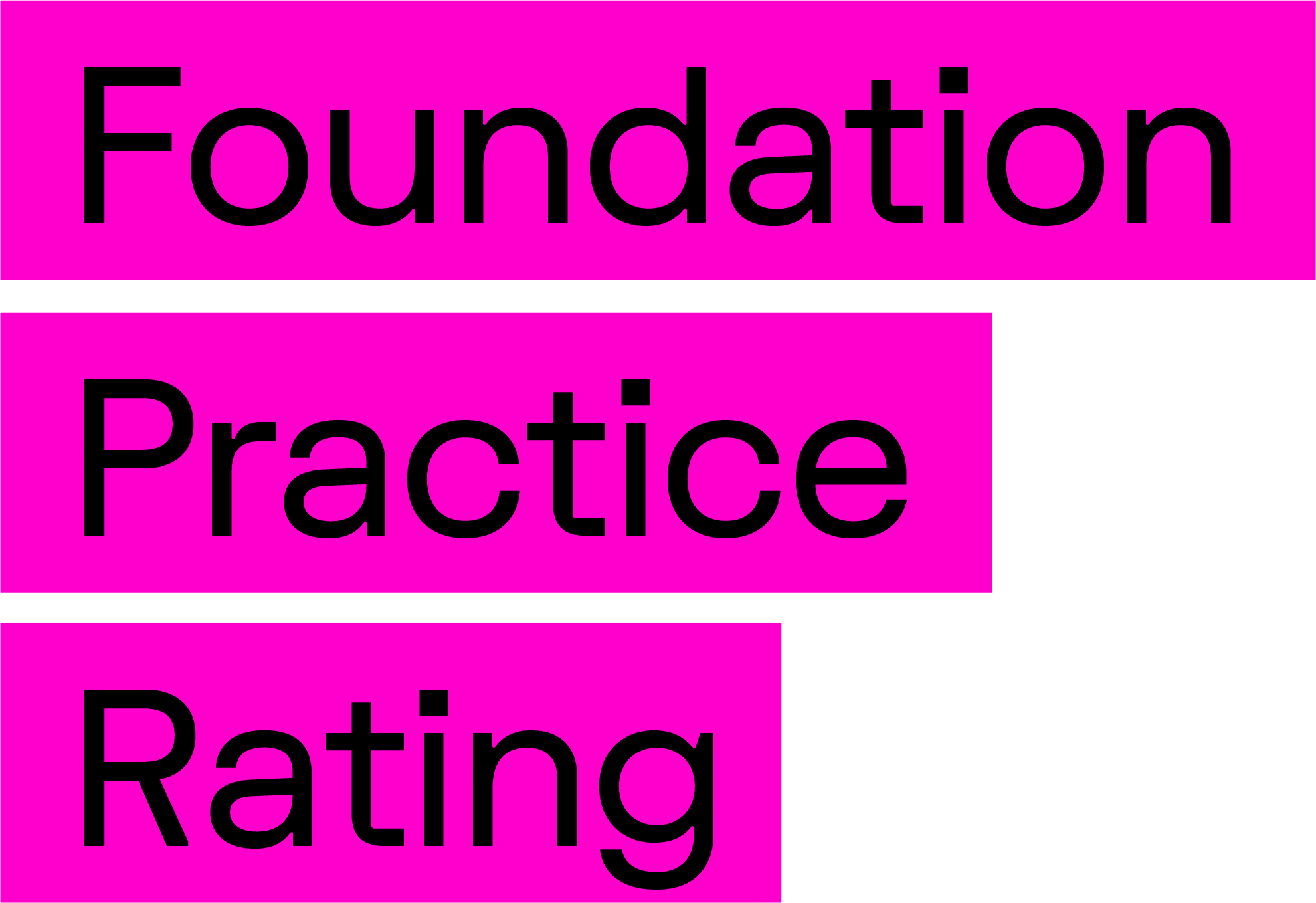Foundation Practice Rating: early analysis on diversity, transparency, communication
The Foundation Practice Rating has launched! Following the July 2021 article in Alliance, the initiative to research and rate UK grant-making foundations on their accountability, transparency and diversity is now in the field. The Foundation Practice Rating research is being undertaken by Giving Evidence who have reviewed about 100 UK trusts and foundations.
Here are some of the themes that are emerging from the research so far:
Diversity plans: the good and bad news
The researchers have found that most foundations publicly affirm their commitment to equality, diversity and inclusion. Many provide statements indicating a willingness to improve; however, a statement is not a plan. The bad news is that only a few of those statements contain clear targets or goals. More work needs to be done on making the reality of staff and boards reflect their commitment to fairness.
Foundations rarely disclose the make-up of staff teams or trustees
Funders regularly review and sometimes critique the staff and boards of organisations whom they fund, in terms of the characteristics of those running activities. This focus on good governance and diversity of thought is borne of solid philanthropic knowledge and experience of what makes an effective project. However, they the FPR has found that trusts do not usually apply that test to themselves.
The research underpinning the rating suggests foundations should consider being more open about key characteristics that may influence and inform their decision-making. For example, age, gender, disability and ethnicity, rather than making applicants and stakeholders guess the backgrounds of the board and key staff members from website photos.
Foundation websites are not user friendly
Some foundations’ websites are cluttered with pictures or text, which impede finding information. Other sites are too sparse; visually attractive but not containing enough relevant information. For example, they don’t specify how to apply or what the foundation funds.
Most foundations’ websites meet the baseline requirements for visually impaired people, and some have made provisions for people with dyslexia, however, many present in only one format, either text or pictures. Additionally, although many fund in Wales, trusts often do not provide information in Welsh or even mention it. This falls well below the standards adhered to by businesses or public sector bodies.
One way communication
The researchers were surprised to find that many foundations do not have an obvious mechanism for making complaints or raising concerns. Moreover, they often do not provide an accessible contact point, or even a phone number. It seems that much of the communication is one way.
The Foundation Practice Rating is funded by foundations to challenge both their own practice and that of their peers. Foundations often recognise that progress on transparency, diversity and accountability has been slow and halting. The process to date has been challenging for funding organisations, as reflected in this response from Friends Provident Foundation: “the Foundation Practice Rating highlighted that we have had issues with our website. It needs to be more accessible, accurate and user friendly, this has become a focus for work for us”.
The Foundation Practice Rating has already been a catalyst for organisational change, and they hope it will have a similar impact on the wider UK giving sector for years to come.
Foundation Practice Rating is a project led by Friends Provident Foundation, with research support by Giving Evidence. For more information about the project, visit foundationpracticerating.org.uk.
Jake Furby is Communications Manager at Foundation Practice Rating, and Dr Sylvia McLain is leading on the research for this project.
